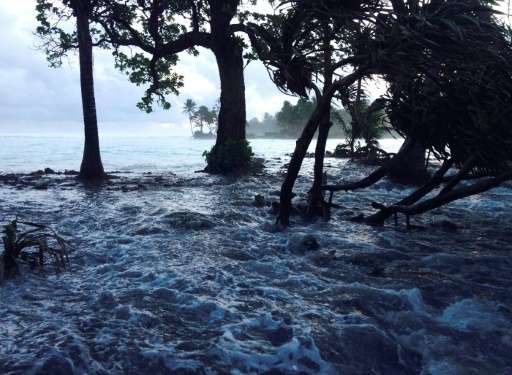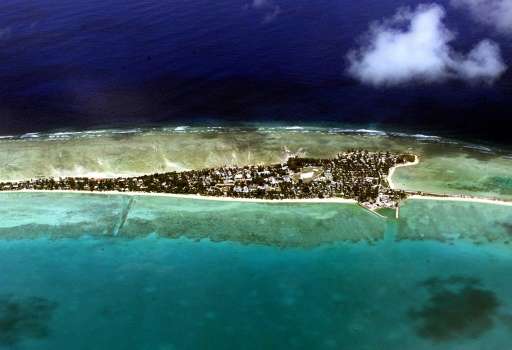Pacific islands can't tackle climate change alone: World Bank

Climate change will hit the Pacific harder than anywhere else on Earth and the region's tiny island nations need major international aid to deal with the challenge, the World Bank said Thursday.
A World Bank report, "Pacific Possible", draws on research from numerous sources to back the long-held view of regional leaders that they are on the frontline of global warming.
"(It) could have more dire impacts on the Pacific islands than any other country in the world," warned the report, released Thursday at the Pacific Islands Forum in Samoa.
The study said that even under a best-case scenario—with oceans rising 40 centimetres (16 inches) by 2100—island nations would face huge costs building seawalls to protect their coastlines.
The worst-case outcome—waters up 126 centimetres by 2100—would swamp large areas of habitable land in low-lying nations such as Kiribati, the Marshall Islands and Tuvalu.
"There is little prospect that the high costs of building sea walls could be financed by the countries themselves," the report said.
"Accordingly, the international community will have to assess the trade-off between large initial expenditures on construction... versus emergency relief and recovery programmes when disasters occur."

It said climate change's impact was already being seen through coastal erosion, saltwater contamination of farmland and drinking water, as well as unpredictable rainfall causing more droughts and floods.
The Pacific has always been lashed by cyclones but the report said the most destructive category five storms were set to become more frequent, straining the region's already scarce economic resources.
It said Cyclone Pam, which hit Vanuatu in 2015, wiped out the equivalent of 64 percent of the country's GDP.
The report said Kiribati and Tuvalu, which are both only a few metres above sea level, may need to consider wholesale migration and that Australia and New Zealand, the region's richest and most developed nations, could help by giving islanders open access to their labour markets.
"It would allow for gradual migration from the atoll nations and be less costly and preferable to a last-minute abandonment, which would require significant emergency assistance and be difficult to manage," it said.
While the World Bank acknowledged the problem climate change poses, it also said there were a number of economic opportunities Pacific nations could pursue to increase prosperity in coming decades.
It said tourism, particularly from China, had the potential to deliver an extra one million visitors a year by 2040, generating additional income of US$1.6 billion and 110,000 jobs.
Improved internet access could also help counter the remoteness that has hindered economic growth in the islands, providing scope for employment opportunities such as call centres.
© 2017 AFP




















